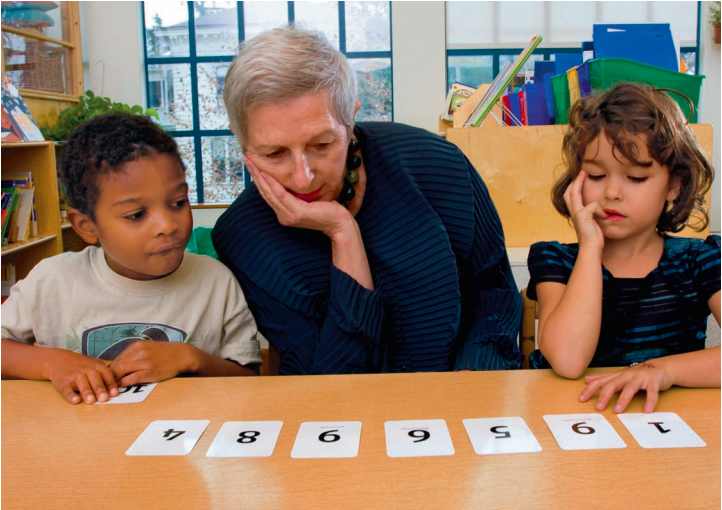Solitaire Games for ANY Age!
Sometimes, your kids need some alone time. And sometimes, you need your kids to have some alone time.
Most of the games I've recommended so far have been multiplayer games, which are a great way to spark mathematical discussions and investigations between parents and adults.
But sometimes, you just need 30 minutes while you get through some emails. And below I have some great games for your kids to play solo while you compose email after email that starts "Sorry for the delay, things are a little hectic around here..."
Kindergarten & First Grade
For youngsters, a solitaire game needs to be extremely simple, but enjoyable. For that reason, I think Seven Up is a great choice.
I learned about this game from Marilyn Burns. who, by the way, has been sharing FANTASTIC stuff on Twitter during the quarantine.
To play, you just need the A-10s from a deck of cards (or, even better, some Tiny Polka Dot cards!). You shuffle the cards and then place seven cards face up in front of you.
Any time you find a pair of cards that adds to 10, you remove them and replace them with cards from your deck. The goal of the game is to work your way through the entire deck.
The good news is, if your child calculates correctly, they should be able to win every time! And along the way they'll be practicing one of the most important skills in early elementary math, pairs that add to 10.
Check out my full write-up of Seven Up here on my blog
Second & Third Grade
If your kids are a bit older, they can try a solitaire puzzle that requires a bit more logical reasoning. I recommend Shikaku puzzles.
These puzzles are my favorite of the Japanese grid puzzles, made famous by Sudoku. The reason I love them is that they seamlessly combine logical deduction with the area model that will be such a big part of your child's later math education.
To play, you must draw rectangles to fill the grid. Each rectangle must contain a number that matches its area.
Your kid doesn't need to know anything about multiplication to play Shikaku, but they'll definitely learn something about multiplication along the way! For example, some numbers like 5 can only make one type of rectangle: a 1x5 long skinny one. Other numbers, like 6, can make either a 1x6 or 2x3.
So over time, your kid might start to internalize the difference between prime and composite numbers, so that by the time they learn the terms in later years, they'll have some informal experience with the distinction, simply by playing these puzzles.
You can download free Shikaku puzzles here, or buy a book of puzzles from Amazon (affiliate link). I wrote more extensively about Shikaku on my blog earlier this year.
Fourth & Fifth Grade
For kids this age, you could show them this adaptation of the Factors and Multiples Game. You can try out the game on this website.
I also got this game from Marilyn Burns! Originally, the game is played with two players. The first player claims an even number under 50, like 32 for example. The second player claims a number that is a factor of 32 (like 2 or 4) or a multiple (like 64). The first person who can't claim a number, loses.
But there is a way for your child to play their own solitaire variation - just try to come up with the longest possible string of numbers.
I love this puzzle because your child can keep coming back to it over and over. Can they make a string with 20 numbers? How about 30? Marilyn posted her own 47-number string on Twitter. Can you beat her? What's the longest possible string of numbers that can be made?
Along the way, your child will start to internalize the connections between numbers with common factors. They can see how to get from 14 to 7 to 35 to 5 and so on. These connections will serve them well when they have to simplify fractions or find common denominators!
Check out the Factors and Multiples Game on the NRICH website.
Sixth Grade and Up
If your child is in middle school, they are definitely ready for my favorite puzzle game ever, The Witness.
This game works great on an iPad, although I believe it can be played on console or PC as well (although it is much costlier)
Essentially, you walk around and solve spatial puzzles. Each puzzle opens the next, and you can gain access to new areas by unlocking doors which, of course, are locked by puzzles.
My favorite part about this game is that there is absolutely no verbal tutorial. You simply explore the game, learning how to play as you are guided from puzzle to puzzle.
This game is what I wish Myst had been when I was a kid. I love it so, so much. Check it out!
I wrote about The Witness on my blog last year.








